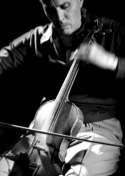So with all pleasures of life.
All things pass with the east-flowing water.
I leave you and go—when shall I return?
Let the white roe feed at will among the green crags,
Let me ride and visit the lovely mountains!
How can I stoop obsequiously and serve the mighty ones!
It stifles my soul.
His Dream of the Skyland – A Farewell Poem.
Li Po (Li Bai) (~701-763 CE) is universally recognized as one of the greatest Chinese poets of the Tang period, or for that matter, of the entire Chinese literary tradition. His poetry shows the influences of the interwoven philosophical religions of his time, Taoism, Neo Taoism, Confucianism and Buddhism, as well as a particular fondness for nature and wine. Well educated, highly regarded by everyone, he had lifelong trouble securing a post and spent his life as a wanderer, preternaturally creative and prolific. Over one thousand poems remain, along with the stories of his improvisations, drunkenness and generosity. Legend has it that he drowned while trying to grasp the moon in the water, but he is generally regarded to have committed suicide after leaving a farewell poem (partially quoted above). (This poem is the 10th of the set of 17 Lyrics).
The parallels between Partch and Li Bai are so striking as to imagine that they are the same person, re-cycled after a period of 1200 years. Hoboes, brilliant, often drunk, deeply admired, suspicious of authority, unable to find peace or security, and spectacularly creative, they are the irritating grain of sand in society’s eye that add the full dimension to our humanity – the rememberers of forgotten things.
“I am first and last a composer. I have been provoked into becoming a musical theorist, and instrument builder, a musical apostate, and a musical idealist, simply because I have been a demanding composer. I hold no wish for the obsolescence of the widely heard instruments and music. My devotion to our musical heritage is great — and critical. I feel that more ferment is necessary for a healthy musical culture. I am endeavoring to instill more ferment.” –Harry Partch 1942
In 1930, the composer Harry Partch (1901-1974) broke with Western European tradition and forged a new music based on a more primal, corporeal integration of the elements of speech, rhythm and performance using the intrinsic music found in the spoken word, the principles of acoustic resonance and just-intonation. Borrowing from the intonation systems of the ancient Greeks, he created a scale of 43-tones per octave, in part to enable him to capture the nuances of speech in his music, and to forge purer harmony. (more…)

 Daniel Rothman’s
Daniel Rothman’s Ezra Sims
Ezra Sims